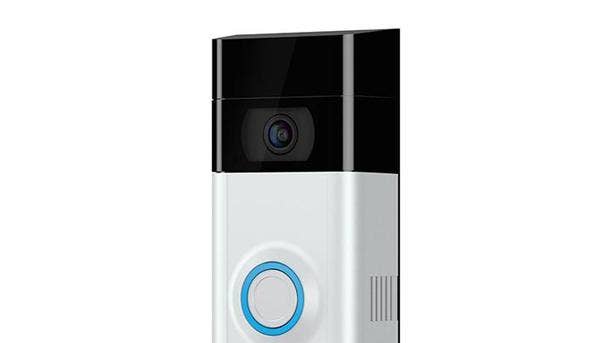5 Companies That Had A Rough Week
For the week ending Jan. 31, CRN looks at IT companies that were unfortunate, unsuccessful or just didn't make good decisions.

The Week Ending Jan. 31
Topping this week's roundup of those having a rough week is VMware for losing a patent infringement case.
Apple and Broadcom made this week’s list—also for losing a patent infringement case. Facebook must fork over more than a half-billion dollars to settle a class-action data privacy lawsuit, while convenience store chain Wawa found out just how big that 2019 security breach was. And Amazon’s Ring was on the defensive this week when a report disclosed that the company’s video doorbell application sends data to third-party companies.
Not everyone in the IT industry was having a rough go of it this week. For a rundown of companies that made smart decisions, executed savvy strategic moves—or just had good luck—check out this week's 5 Companies That Came To Win roundup.

VMware Loses vRealize Patent Infringement Case, Must Pay $236 Million
Virtualization giant VMware must pay $236 million in damages to cloud optimization software company Densify after a Delaware jury found that VMware infringed on Densify software patents and committed trademark infringement.
After a nine-day trial the federal court jury concluded that VMware’s vRealize Operations (vROps) 7.0, vRealize Operations 7.5 and its Predictive DRS release infringed on two Densify patents for virtual guest-host placement services. Densify brought the trademark infringement charge saying VMware created market confusion by using “Densification” to identify a vROps feature.
Toronto-based Densify, which offers an infrastructure optimization product, has worked with VMware in the past around technology integrations. But Densify says VMware has become more of a competitor in recent years.
VMware maintains its innocence and intends to continue fighting the case.

Apple, Broadcom Owe CalTech $1.1 Billion In Patent Case
Sticking with the topic of patent infringement decisions, Apple and Broadcom owe the California Institute of Technology more than $1.1 billion after CalTech won a jury verdict in a patent infringement case.
Apple must pay CalTech $837.8 million in the case while Broadcom must cough up $270.2 million, according to a Los Angeles Times story.
In a lawsuit filed in 2016, CalTech charged that Broadcom Wi-Fi chips used in hundreds of millions of Apple iPhones infringed on patents held by CalTech relating to data transmission technology, according to a Reuters story. That story said Apple intends to appeal the verdict.
Bloomberg Data said the verdict was the sixth-largest patent infringement verdict of all time.

Facebook To Pay $550 Million To Settle Facial Recognition Class-Action Lawsuit
And completing a trifecta of expensive court cases, Facebook has agreed to a $550 million settlement of a class-action lawsuit that charged that the social media giant collected facial recognition data on millions of users in violation of an Illinois consumer privacy law.
The lawsuit, filed in 2015, charged that Facebook illegally collected and stored biometric facial recognition data without their consent in violation of Illinois’ Biometric Information Privacy Act, according to an NBC News report. The data collection occurred through Facebook’s “Tag Suggestions” feature that allows users to recognize Facebook friends from previously uploaded photos.
Facebook had argued that facial recognition did not constitute biometric data and that the Illinois law did not apply because Facebook is a California-based company, according to TechCrunch. But a judge had rejected those arguments.
In addition to the payout, Facebook agreed to acquire full consent from Illinois users before collecting any biometric data.

Wawa Security Breach: Stolen Data From 30 Million Customers Now For Sale
Wawa, a Pennsylvania-based convenience store chain, acknowledged in December that malware discovered on the company’s payment processing servers, apparently installed in March 2019, had stolen customer payment card information including credit and debit card numbers, expiration dates and cardholder names. At the time the number of affected consumers was unknown.
Now we know. This week Krebs on Security reported that the breach may have compromised more than 30 million payment cards. What’s more, the website reported that some of the stolen data has begun showing up for sale on underground websites such as the fraud bazaar known as Joker’s Stash.
That means the Wawa security breach would rank among the largest such incidents including the 2013 breach at Target that exposed 40 million sets of consumer data and the 2014 Home Depot breach that exposed data for 50 million consumers, according to threat intelligence firm Gemini Advisory, which discovered the Wawa data that’s being offered for sale.

Report Says Ring For Android Doorbell Application 'Packed With Third-Party Trackers'
Amazon’s Ring business found itself under the microscope this week after a report from the Electronic Frontier Foundation said the Ring for Android doorbell application was “packed with third-party trackers” that collect and send out customers’ personally identifiable information to four marketing and analytics firms, including Facebook.
“Not only does Ring mismanage consumer data, but it also intentionally hands over that data to trackers and data miners,” the report from the civil liberties group said, adding that not all of the trackers are disclosed in Ring’s privacy notice.
The EFF found that Ring for Android version 3.21.1 delivers a range of personal information, including names, IP addresses and mobile network data, to facebook.com, mixpanel.com, appsflyer.com and branch.io. The report said information is also sent to Google’s crash logging service Crashalytics, but could not determine the exact extent of data sharing.
“The danger in sending even small bits of information is that analytics and tracking companies are able to combine these bits together to form a unique picture of the user’s device,” the report said. “This cohesive whole represents a fingerprint that follows the user as they interact with other apps and use their device, in essence providing trackers the ability to spy on what a user is doing in their digital lives and when they are doing it.”